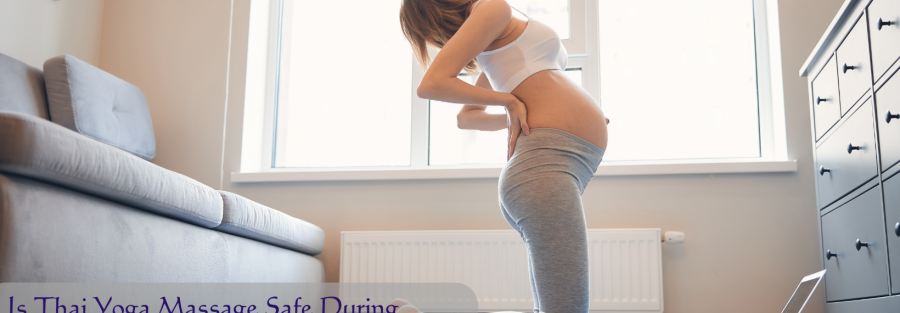Congratulations! You’re embarking on the incredible journey of pregnancy. As your body undergoes beautiful transformations, it’s natural to seek ways to manage discomfort, promote relaxation, and nurture your well-being. Thai yoga massage, a holistic practice combining acupressure, gentle stretches, and assisted yoga postures, might pique your interest. But is it safe during pregnancy?
This comprehensive guide dives deep into the world of Thai yoga massage for expecting mothers. We’ll explore the potential benefits for both mom and baby, safety considerations throughout the trimesters, and essential tips for finding a qualified prenatal massage therapist.
Benefits of Thai Yoga Massage During Pregnancy
Pregnancy brings a multitude of changes, some wonderful, some challenging. Thai yoga massage can be a valuable tool to address these and enhance your overall prenatal experience. Here’s how:
- Reduced Back Pain and Discomfort: The growing belly strains your back muscles. Thai massage’s gentle stretches and acupressure techniques can target these areas, promoting relaxation and pain relief.
- Improved Circulation and Reduced Edema (Swelling): Pregnancy often leads to fluid retention, causing swelling in the legs and ankles. Thai massage techniques that stimulate circulation can help alleviate this discomfort.
- Enhanced Flexibility and Mobility: As your body prepares for childbirth, increased flexibility is crucial. Thai yoga massage’s assisted stretches can improve joint mobility and range of motion.
- Stress Reduction and Relaxation: Pregnancy can be emotionally demanding. Thai massage’s focus on relaxation techniques like deep breathing and gentle manipulation can significantly reduce stress and promote overall well-being.
- Improved Sleep: Quality sleep is essential during pregnancy. Thai massage’s calming effect can help you achieve deeper, more restful sleep.
- Enhanced Emotional Well-being: The nurturing touch and focus on body awareness inherent in Thai massage can create a sense of peace and connection with your growing baby.
Safety Considerations for Each Trimester
While Thai yoga massage offers numerous benefits, it’s crucial to prioritize safety throughout your pregnancy. Here’s a trimester-by-trimester breakdown:
- First Trimester: This is a period of critical fetal development. Due to the increased risk of miscarriage, many massage therapists avoid working on pregnant women during this time. It’s best to consult your doctor before scheduling any massage appointments in the first trimester.
- Second Trimester (Generally Considered Safest): The second trimester is generally considered the safest time for Thai yoga massage during pregnancy. However, certain techniques should still be avoided. Always communicate openly with your therapist about your specific needs and any concerns you may have.
- Third Trimester: As your belly grows and your center of gravity shifts, certain massage positions might become uncomfortable or even unsafe. Discuss modifications with your therapist to ensure a comfortable and relaxing experience.
Techniques to Avoid During Pregnancy
Certain Thai yoga massage techniques are not recommended during pregnancy:
- Strong stretches or twists targeting the abdomen: This can put undue stress on your ligaments and potentially affect the baby.
- Acupressure points on the lower back and abdomen: Stimulating specific acupressure points in these areas can potentially trigger uterine contractions.
- Deep tissue massage: This type of massage applies too much pressure, which can be uncomfortable and potentially harmful during pregnancy.
Finding a Qualified Prenatal Thai Yoga Massage Therapist
Finding a qualified and experienced prenatal Thai yoga massage therapist is crucial. Here are some key points to consider:
- Certification: Ensure the therapist has a valid massage therapy certification and additional training specifically in prenatal massage techniques.
- Experience: Ask about the therapist’s experience working with pregnant women. The more experience they have, the better equipped they will be to adapt the massage to your specific needs and trimester.
- Communication: Open communication is key. Discuss your pregnancy stage, any concerns you have, and desired pressure level.
- Comfort Level: Trust your instincts! Choose a therapist who makes you feel comfortable and safe.
Conclusion
Thai yoga massage can be a wonderful way to nurture your body and mind during pregnancy. By understanding the potential benefits, safety considerations throughout each trimester, and the importance of finding a qualified therapist, you can make informed decisions about incorporating this practice into your prenatal wellness routine.



